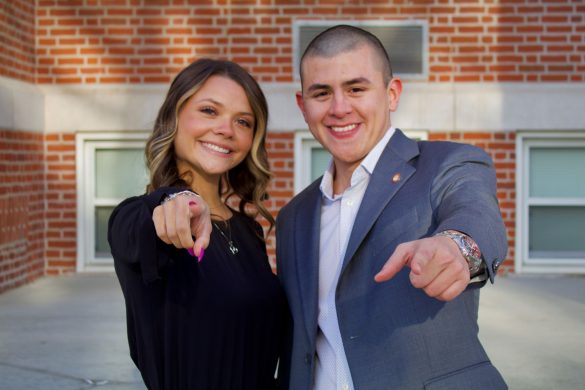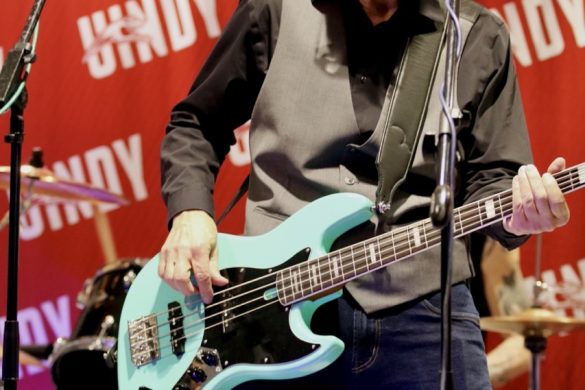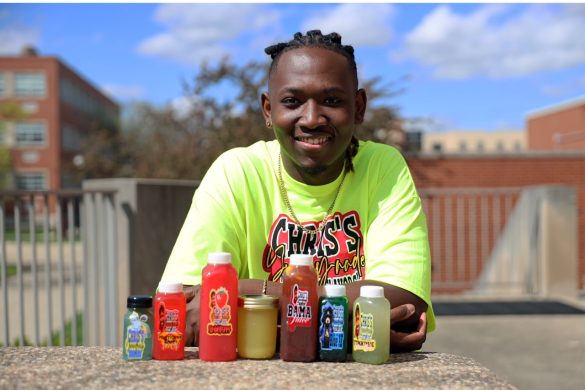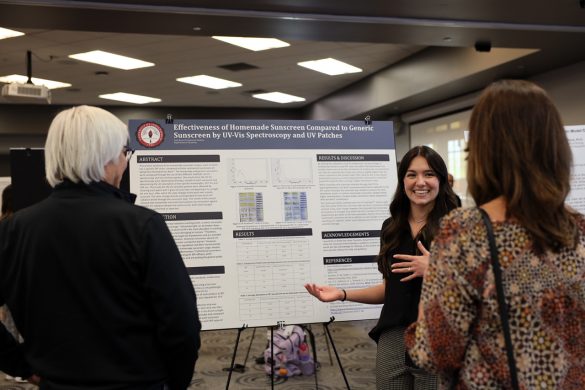To commemorate Veterans Day, The Reflector reached out to two faculty and staff members who were willing to share their stories.
Former Indianapolis Mayor and University of Indianapolis Visiting Fellow Gregory Ballard said his career began in 1978, right after he had graduated from Indiana University. He said he served in Panama during 1989 but mainly served in the Gulf War, which took place from 1990-91.
“I was primarily a logistician,” Ballard said. “Working those sorts of issues, I certainly did that during the Gulf War. That was a big deal at the beginning to do that, that was a major part of that war.”
Ballard said that all of the opportunities that the Marine Corps gave him, alongside his work as a logistician, helped him with his further career as mayor. He said the one major thing he learned during his time as a Marine Corps officer was focus.
“Despite all that is happening around you, what are you really trying to do right now? And I think that really helped out later on in life for me when I had to focus as strongly as I could,” Ballard said.
Before joining the Marine Corps, Ballard said that he was a college student who didn’t have much structure or organization in his life. He said he wanted to find his way, and that is when he went to speak with the Armed Forces.
He said that he never wanted to join the forces beforehand. Ballard had a completely different plan until he spoke with a Marine in Bloomington, Indiana, he said.
“I stayed in there for two hours, never spoke with the other services. Really, that’s what happened,” Ballard said. “He told me to go get my last 30 hours, get that done and join as an officer. That’s what he told me to do and that’s what I did.”
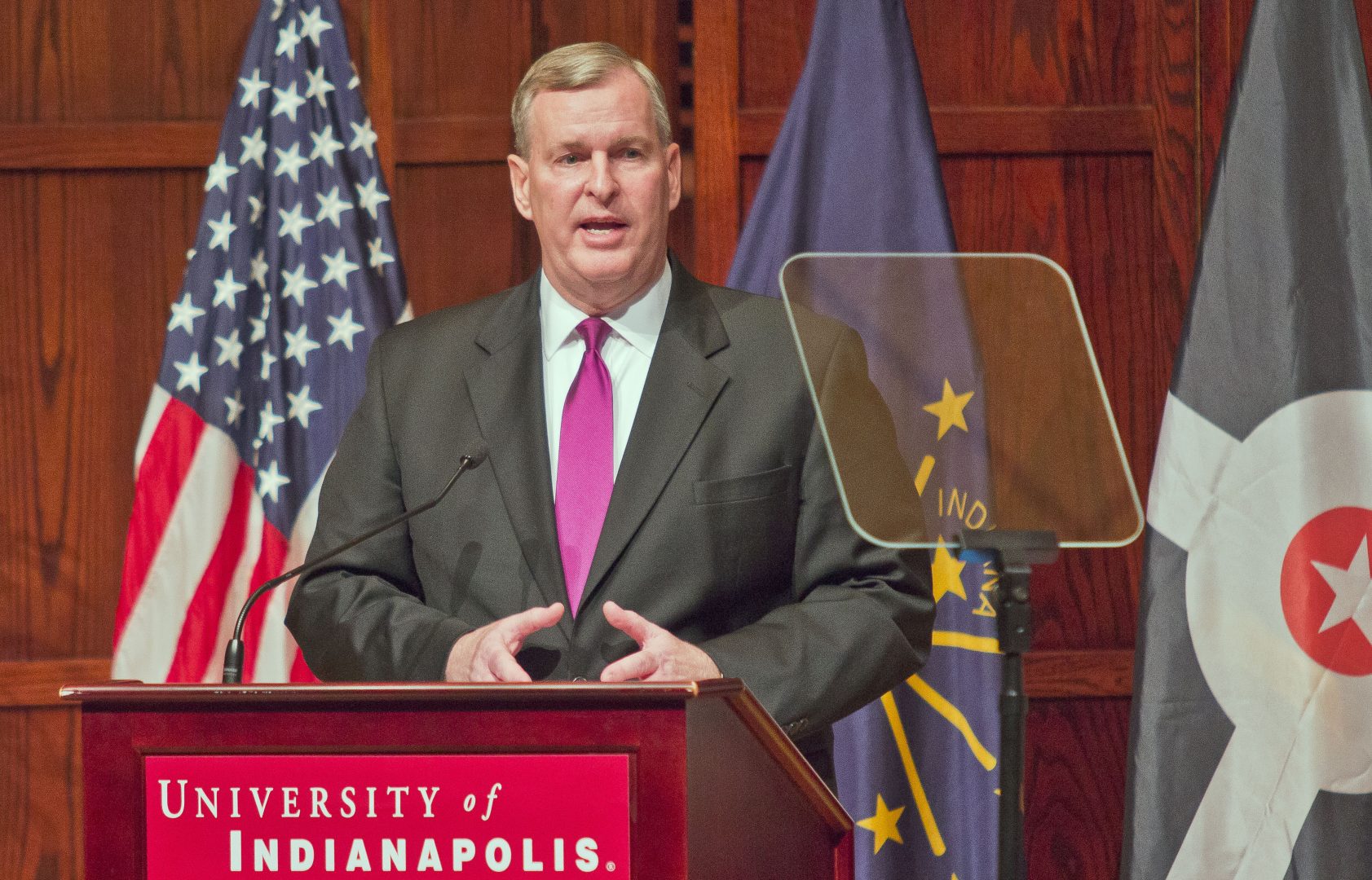
That two hour conversation completely changed his life, according to Ballard. He said he still remembers that exact moment that meant so much to him.
“He [the Marine] was so proud of being a Marine, and it was really obvious,” Ballard said. “For a guy who, again, was lacking structure or lacking any organization. Something to hang on to had meant something to me, it really meant something to me. He was so proud of what he was doing and he gave me some terrific advice that time.”
Ballard said he appreciates the fact that Veterans Day exists. He said he has gratitude for those who thank veterans and that he remembers the first time someone told him thanks for his service.
“It was in the mid 1990s actually in Cape Gerard, Missouri. Believe it or not, it was in a steam room in a hotel in Cape Gerard, Missouri, because that’s when I was in the recruiting station. I was down there exercising, and the guy asked me what I did and I said, ‘I’m in the Marines’ and he goes, ‘Well, thank you for being in the Marines.’ I remember — I’m getting all choked up right now, because that was the first guy that said that to me.”
Assistant Professor of Nursing Laura Darnell said she was stationed at the 445th Aeromedical Evacuation Squadron at Wright-Patterson Air Force Base in Ohio. According to Darnell, the flight nurses’ mission was to fly out as cargo in their assigned aircraft where the plane was stripped bare for medical equipment and for handling medical patients.
“We would go over and the other crews would offload that equipment, and in return, reconfigure that aircraft and then we would bring medical patients back stateside,” Darnell said.
Darnell said she was sworn in in 1994 and left the Air Force Reserves in 2009. She said she joined because her father and grandfather were in the Air Force and Marines respectively, and she thought it would be something interesting to do. Furthermore, she wanted to get in aspects of both flying and nursing, she said.
“I didn’t do active duty. I did reserves because I wanted to still be able to get my experience here stateside,” Darnell said. “Once a month we would fly on missions.”
According to Darnell, it wasn’t unusual to find a woman in the Air Force in a nursing role as it is predominantly a women’s field. She said she was trained to be a part of a team that cared for patients who are critically ill and bring them anywhere on any type of aircraft. The aircraft she was on had a much larger capacity of patients because they did not necessarily care for the critically ill, she said.
Team configurations consisted of a nurse, physician and generally a respiratory therapist, according to Darnell. This differed from a typical American aeromedical evacuation squadron, which consisted of two nurses and three technicians, she said.
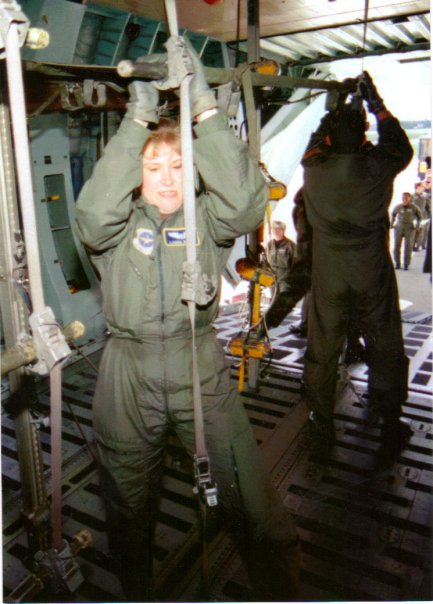
“We’re not trained to be combatants so our training is a little different from that aspect,” Darnell said. “We are, as part of the military, required to learn how to use a firearm and you have to be qualified in using that firearm. We also had to go through extensive training for the particular aircraft, so we knew how to get out of that aircraft.”
Darnell said her first experience with teaching was in the Air Force as a flight nurse instructor. Her role as an instructor was to teach the nurses when they came back from flight school about C-141, the aircraft on which she flew.
“We would spend a great deal of time doing training missions together and teaching them that role and that kind of stuff, and I really enjoyed it,” Darnell said.“That blossomed into what I was doing at the bedside in nursing and I started precepting new employees as well ….When it was time to think about getting my master’s degree, I was like ‘You know what, I think I want my master’s degree in nursing education.’ So that’s what I did and then I ended up here [at UIndy].”
Darnell said she enjoyed when different evacuation squadrons all got together to compete in configuring a blank aircraft for patients in a scenario.
“When we got done, they let us take sidewalk chalk to the sides of our aircraft because our aircrafts [were] painted in like a gray primer,” Darnell said. “So we sidewalk chalked our airplane with all kinds of fun cool stuff, so it was part of the fun we got to do right before we left.”
Darnell said she is a lifetime member of the Reserve Officers Association. Darnell said she thinks women in the military are an important aspect of U.S. history and she encourages women to go into the Air Force.
“The nursing students know if they have any desire to find out about military nursing, they can come and talk to me,” Darnell said. “[I] let them know things based on my experience, and I think it’s just a great way to expand your knowledge and see other things that are out there first and very versatile.”

